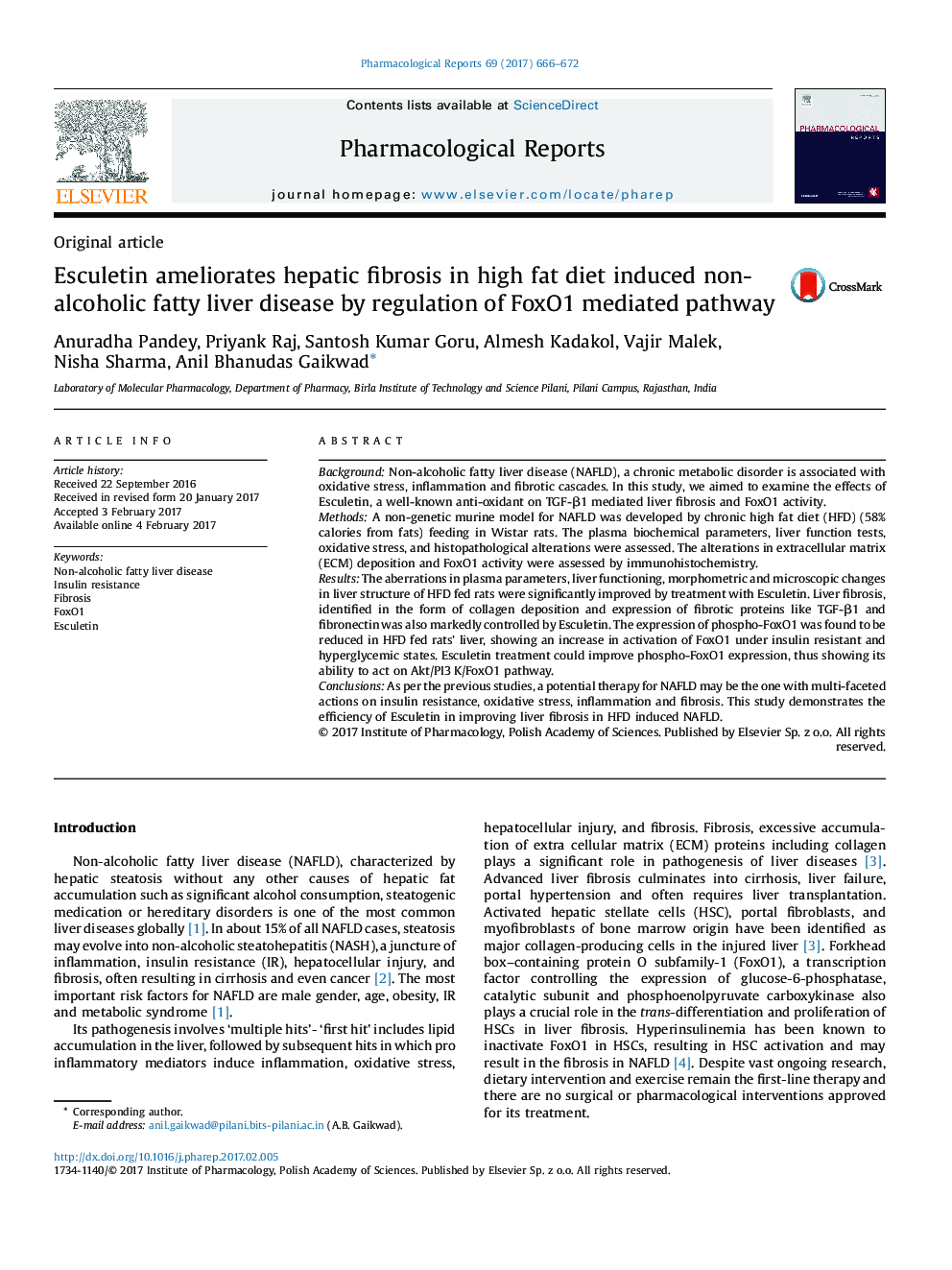| Article ID | Journal | Published Year | Pages | File Type |
|---|---|---|---|---|
| 5515033 | Pharmacological Reports | 2017 | 7 Pages |
BackgroundNon-alcoholic fatty liver disease (NAFLD), a chronic metabolic disorder is associated with oxidative stress, inflammation and fibrotic cascades. In this study, we aimed to examine the effects of Esculetin, a well-known anti-oxidant on TGF-β1 mediated liver fibrosis and FoxO1 activity.MethodsA non-genetic murine model for NAFLD was developed by chronic high fat diet (HFD) (58% calories from fats) feeding in Wistar rats. The plasma biochemical parameters, liver function tests, oxidative stress, and histopathological alterations were assessed. The alterations in extracellular matrix (ECM) deposition and FoxO1 activity were assessed by immunohistochemistry.ResultsThe aberrations in plasma parameters, liver functioning, morphometric and microscopic changes in liver structure of HFD fed rats were significantly improved by treatment with Esculetin. Liver fibrosis, identified in the form of collagen deposition and expression of fibrotic proteins like TGF-β1 and fibronectin was also markedly controlled by Esculetin. The expression of phospho-FoxO1 was found to be reduced in HFD fed rats' liver, showing an increase in activation of FoxO1 under insulin resistant and hyperglycemic states. Esculetin treatment could improve phospho-FoxO1 expression, thus showing its ability to act on Akt/PI3 K/FoxO1 pathway.ConclusionsAs per the previous studies, a potential therapy for NAFLD may be the one with multi-faceted actions on insulin resistance, oxidative stress, inflammation and fibrosis. This study demonstrates the efficiency of Esculetin in improving liver fibrosis in HFD induced NAFLD.
